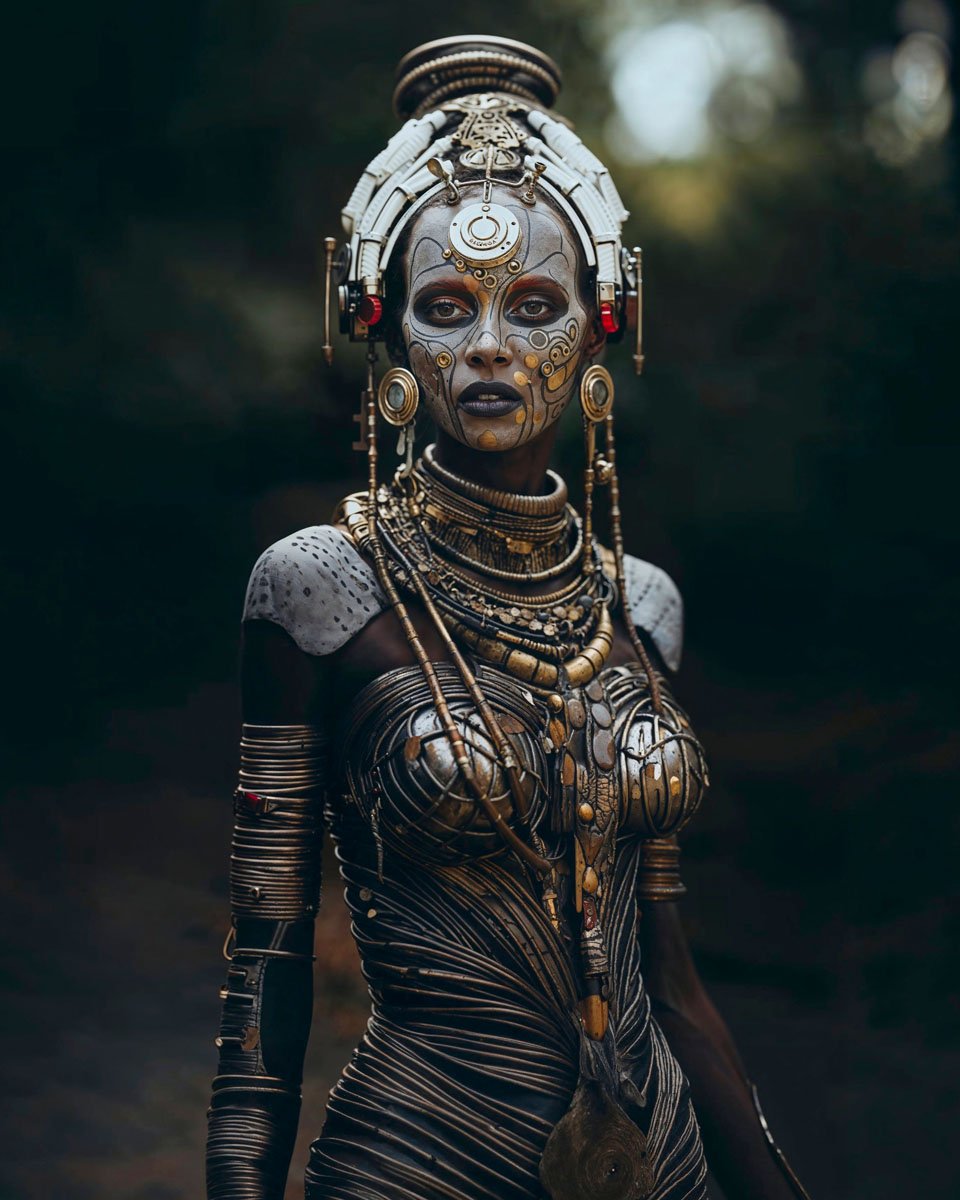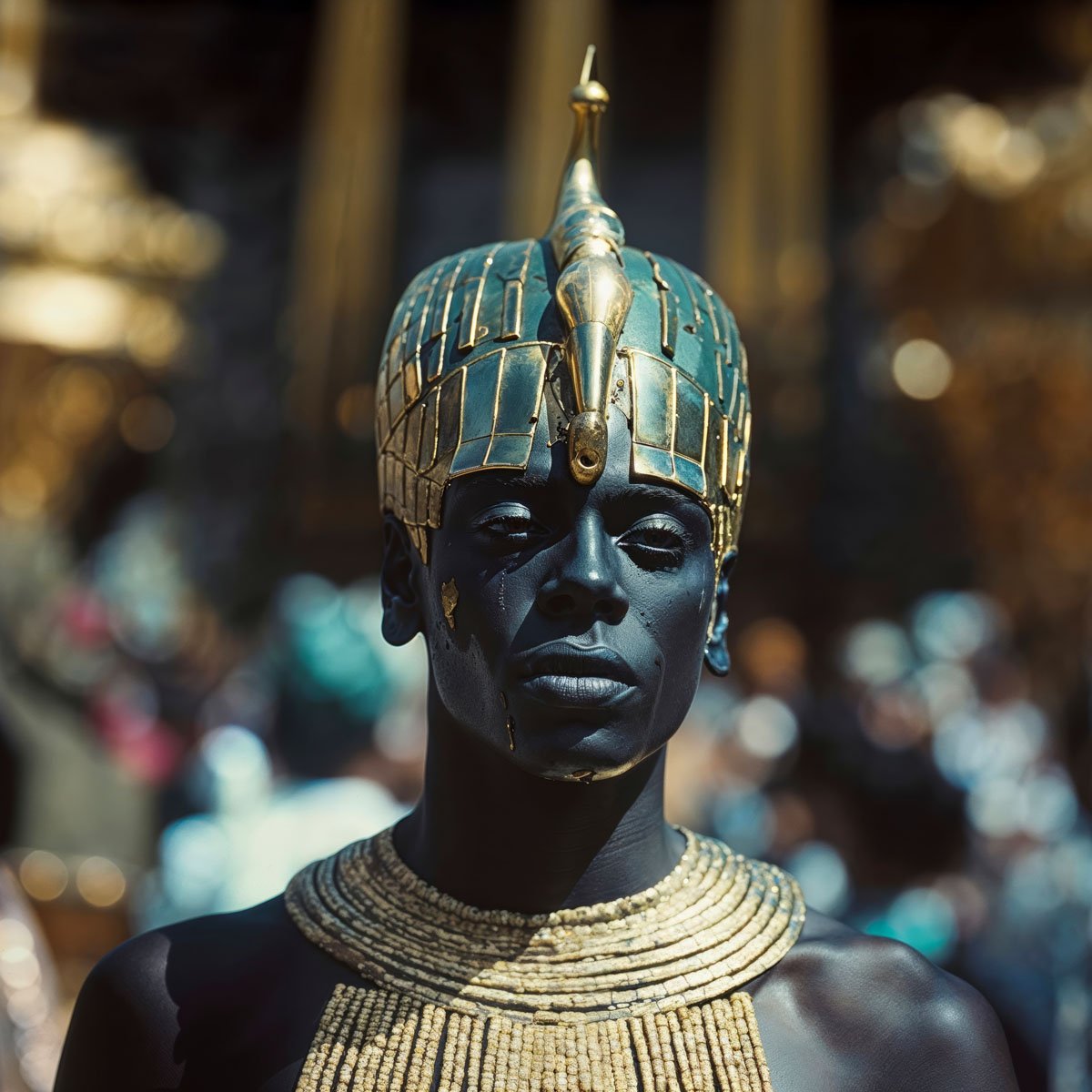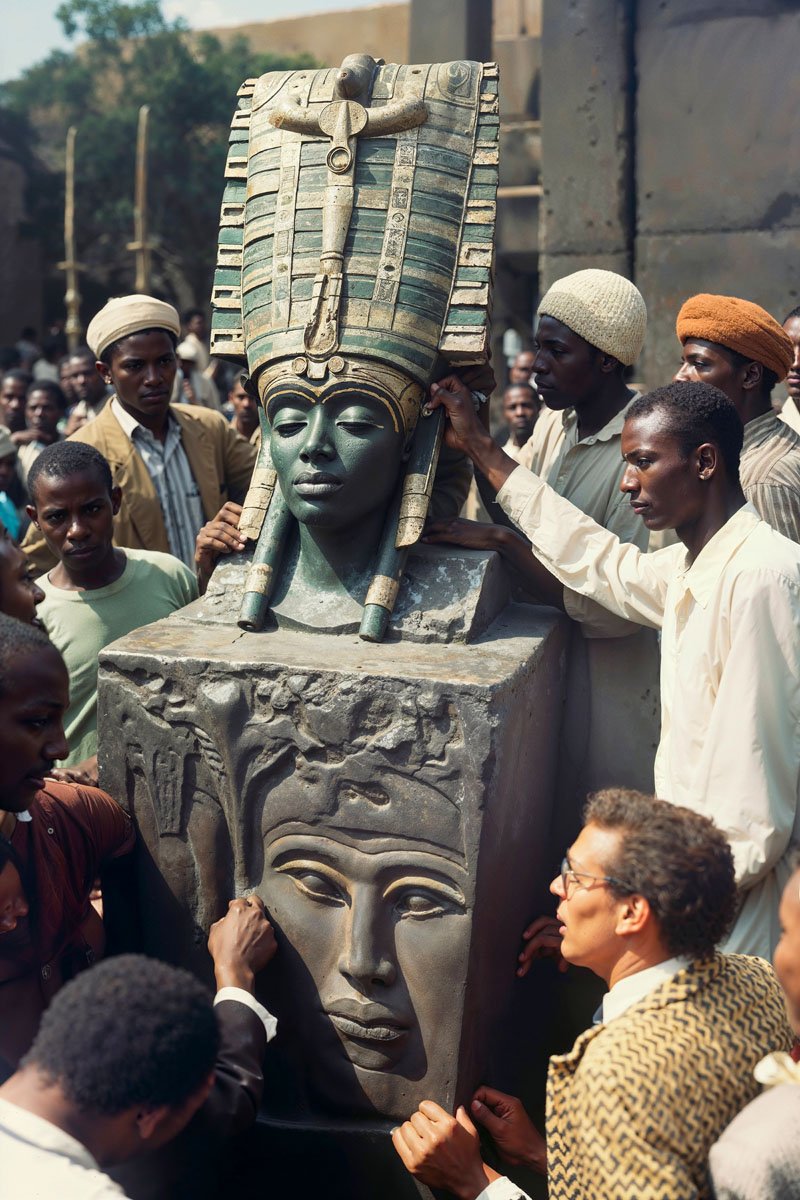
KUSH
-
Born into a French-Senegalese creative family, Delphine Diallo’s first expressions of artistry were in music, graphic design, and artistic direction. However, meeting North-American photographer Peter Beard (1938-2020) radically changed the course of her life enabling her to become a photographer in the full capacity of her agentivity and teaching her invaluable practical lessons. An observer of photography’s traditional gaze on women’s bodies, Diallo made it her mission to become a key actor in the deconstruction of its sexist and racist legacy.
Since 2014, Diallo has been creating a visual language that would empower herself and the women who would become her protagonists and heroines. Diallo started by portraying friends and family members and turned them into goddesses—a way to honor what she names the “divine female body”. Her vision and mission for what these women are and should be would then take form thanks to body paint, jewelry, and various attires.
Aware of the responsibility that comes with representing others, Diallo is centering ethics in her practice, creating long-term relationships and collaborations with her sitters. Throughout the years, Diallo developed a photographic expression that plays with spiritual symbols evoking mythology and giving black women their rightful place in the pantheon.
Her work aspires to elevate her subjects by creating new legends. In that respect, Diallo challenges and redefines the historical genre of portraiture.
Behind her carefully composed images, Diallo inspiration spans from her practice of martial arts and its relation to the body, to non-western literature, and, is ever galvanized, by her in-depth research on spirituality and sciences. More recently, Diallo has been exploring the power and potentialities of self-portraiture, turning mental pictures—or lucid dreams—into carefully crafted mise-en-scène. Working mainly in digital and analogue photography, Diallo has been exploring the ways in which she could make images through an expansion of her tools such as AI, drawings, and found imagery. She has lately been diving into the world of collages and montages, expanding how she can convey narratives and share stories. She states “Image-making is my space for acceptance, integrity, wisdom, beauty, strength, faith, mystery, and the universal matter”. Through her work, she has created her own way of “gazing back”, celebrating black women. Beyond assumptions, she aims at inclusive and transnational representations — dreaming of a future matriarchal society.
Delphine Diallo proposes provocative visuals and crafts innovative iconographies to trigger the viewer’s politics and imagination.
-
Diallo weaves her passion for analogue photography and exploration of Afrofuturist aesthetics with the emerging force of AI. She showcases a set of AI-generated images portraying vast landscapes reminiscent of parts of Africa she visited, infused with spiritual insight. Diallo takes viewers into an imagined world informed by her experiences, inspired by the Kush civilization in ancient Egypt and the book “The African Origin of Civilization” by Cheickh Anta Diop. Through her experimentation with various media, Diallo developed a unique AI design process, creating striking images of reimagined pasts.
Through Diallo’s work, Afrofuturism and AI challenge the persistent narrative and bias of a bleak future by presenting infinite ways of imagining freedom. The machine, rather than a harbinger of doom, becomes a mirror reflecting visions of prosperity and possibility. As “Space Is the Place” resonates, the question arises: Why can’t we imagine a place for us to thrive right here?
She stressed that if something exists in the mind, all we need are the tools to bring our visions of the future, informed by the realities and mysteries of the past, to life. Afrofuturism stands as a powerful counter-narrative to the prevailing dystopian views of the future, inviting us to reimagine a world where technology, culture, and humanity coalesce in harmony.
Diallo’s Kush Collection serves as a tangible example of this vision. Afrofuturism has never solely been an artistic movement but a guiding philosophy that encourages us to co-author the story of our future. While AI is often deemed dystopian, there is ample proof of the synergy between human and machine. The tools we have at our disposal allow us to transcend traditional boundaries and create in ways we simply couldn’t before. Everything we can imagine is now within our reach, and people no longer have to wait to bring their ideas to life—the tool has been given to us.
by Aklil Molosi
COLLECTION














